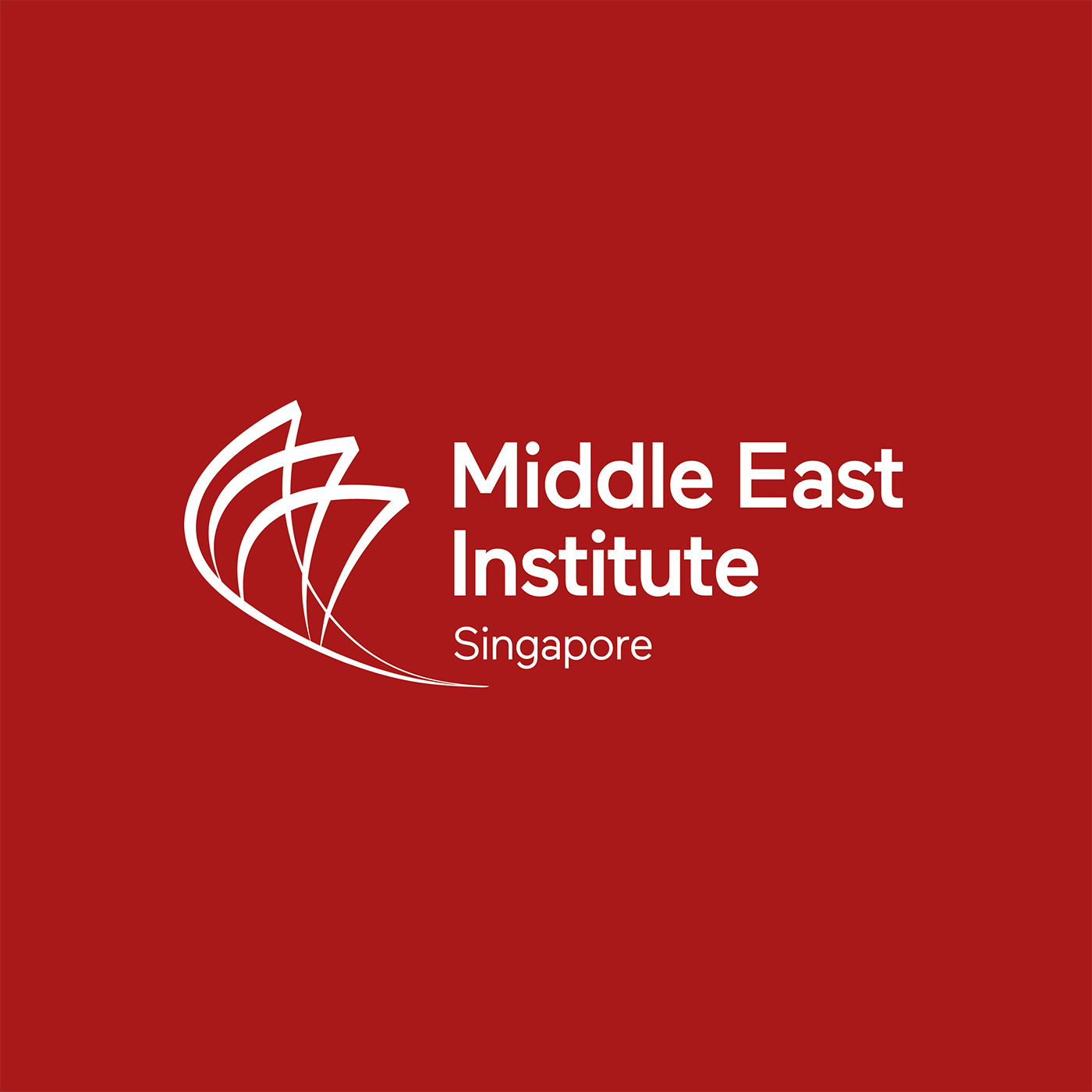Episodes
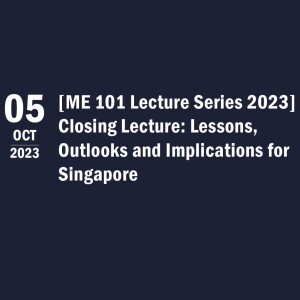
Friday Oct 13, 2023
ME 101 Closing Session
Friday Oct 13, 2023
Friday Oct 13, 2023
Throughout history, the Middle East has been locked in engagements with the West through crusades, wars, colonialism and terrorism. However, beyond the clichés and convenient facades lie many lesser known facets from economic transformation to climate change. This last closing lecture aims to summarise the different sessions and give you an overview of the region, its impacts on Singapore and why should Singapore care about.
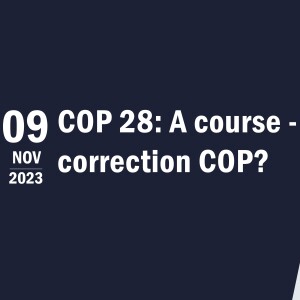
Tuesday Nov 14, 2023
COP 28: A course-correction COP?
Tuesday Nov 14, 2023
Tuesday Nov 14, 2023
Between November 30 and December 10, 2023, the United Arab Emirates will host the 28th meeting of the Conference of Parties (COP 28) to the United Nations Framework Convention on Climate Change (UNFCCC). It becomes the fourth Arab country to host the event. COP 28 brings the world together at a critical moment for humanity, as we stand at the halfway point between the Paris Agreement and the 2030 deadline for GHG emissions to decline. This webinar raises the questions: What can we expect from the UAE as host of COP 28? Will the event be a course-correction COP? Perhaps more importantly, how will governments and businesses adapt to this momentum and implement practical climate solutions?
To answer these questions and more, the Middle East Institute and the United Arab Emirates Embassy in Singapore will bring a panel of experts from the both countries for their views on these questions, and their implications for governments and businesses.
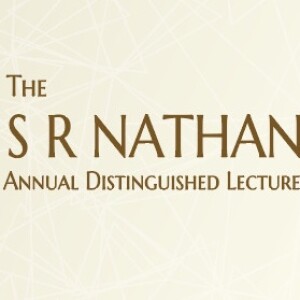
Tuesday Dec 19, 2023
S R Nathan Distinguished Lecture 2023
Tuesday Dec 19, 2023
Tuesday Dec 19, 2023
The aim of the S R Nathan Distinguished Lecture is to provide greater awareness and understanding of the modern Middle East. This lecture provides a forum for statesmen, internationally prominent scholars and public intellectuals to express their views on key issues. The lecture series is named in honour of Singapore’s late former president, Mr S R Nathan, who encouraged a deeper understanding of the Middle East region in Singapore.
The 2023 S R Nathan Distinguished Lecture was organised by Middle East Institute (NUS).
This year’s distinguished speaker was General (Ret.) David H. Petraeus, who served in the US military for 37 years, including several combat commands.
Following his retirement from the US Army, General Petraeus served as director of the Central Intelligence Agency (CIA). During his tenure, the CIA made significant achievements in the global war on terror, established important digital initiatives, and made significant investments in the agency’s most important asset – its human capital.
This year’s format featured a conversation between General Petraeus and Chairman of Middle East Institute Bilahari Kausikan.
This public lecture was conducted both in-person and via Zoom on Wednesday, 13 December 2023.
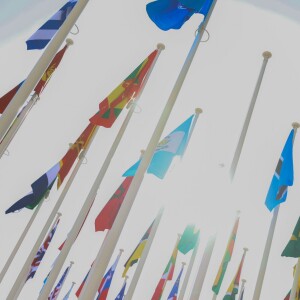
Thursday Feb 22, 2024
Does COP 28 Signal an End of Fossil Fuels
Thursday Feb 22, 2024
Thursday Feb 22, 2024
Between November 30 and December 12, 2023, the United Arab Emirates hosted the 28th meeting of the Conference of Parties (COP 28) to the United Nations Framework Convention on Climate Change (UNFCCC). A major outcome of COP 28 was the conclusion of the first-ever Global Stocktake — a mechanism to measure collective progress towards meeting the goals of the Paris Climate Agreement. For fossil fuel producers, who were granted the highest representation in the history of COP, the inclusion of language on “transitioning away from fossil fuels in energy systems, in a just, orderly and equitable manner” was perhaps the most striking of the COP 28 outcomes. This webinar will explore the following questions:
- What are the main outcomes of COP 28?
- Do these get us on track to keeping 1.5°C within reach?
- Does the phrase “transitioning away from fossil fuels” signal an end for the fossil fuel industry?
- What are the geopolitical implications of the phrase for fossil fuel producers and consumers such as the Gulf states and their major energy partners, such as China, Japan, and South-east Asia?
![[Book Talk] Gulf Monarchies after the Arab Spring](https://pbcdn1.podbean.com/imglogo/ep-logo/pbblog4563756/Video_Opening_Title_copy_sgh23h_300x300.jpg)
Tuesday Feb 27, 2024
[Book Talk] Gulf Monarchies after the Arab Spring
Tuesday Feb 27, 2024
Tuesday Feb 27, 2024
The post-Arab Spring collapse of decades-old regimes inaugurated a decade of re-shaping for the geopolitical order in the Middle East and North Africa region. A multipolar disorder ensued, solidified by the COVID-19 pandemic and the Russian invasion of Ukraine in 2022. Amid general bewilderment, the small monarchies of the Gulf Cooperation Council (GCC) spent the decade between 2011 and 2022 trying to re-shape regional equilibria as protagonists. Cinzia Bianco’s book applies an original theoretical framework to unpack the threat perceptions and strategic calculus driving the behaviour of these new impactful regional players. Six chapters look at the GCC monarchies individually. Bianco challenges commonly-held narratives, and goes beyond attention-grabbing headlines, thus provides reading keys to the past, present, and future of policy-making in the Gulf monarchies, which are middle powers destined to play an oversized role in the new multipolar world. Against that backdrop, the book talk will allow us to reflect on the major evolutions of Gulf states in the past decade, and venture on their future trajectories.
![[Book Talk] Righteous Politics: Power and Resilience in Iran](https://pbcdn1.podbean.com/imglogo/ep-logo/pbblog4563756/Video_Opening_Title_copy_g8u5dc_300x300.jpg)
Friday Mar 15, 2024
[Book Talk] Righteous Politics: Power and Resilience in Iran
Friday Mar 15, 2024
Friday Mar 15, 2024
On March 1, 2024, the Islamic Republic of Iran will hold elections for the sixth term of the Assembly of Experts. The major responsibility of this 88-man institution, comprising qualified clerics, is to choose the future supreme leader after Ayatollah Ali Khamenei’s death, or is rendered incapable of fulfilling the position’s responsibilities. Tehran’s political system, which relies on a complex set of institutional arrangements including a central personality, has held up despite internal strains.
Since the 1979 Revolution, Tehran has turmoil, from the war with Iraq in the 1980s to Donald Trump’s “maximum pressure” campaign more recently. Why and how has the Iranian system persevered despite its adversaries’ efforts, and self-inflicted wounds? What are the control mechanisms or safety-valve functions within the system that have kept it going? What can we expect from the day after Khamenei?
In this webinar, the Middle East Institute will host Professor Mehran Kamrava to explain Iran’s resilience and key findings from his recently-released book, Righteous Politics: Power and Resilience in Iran. Prof Kamrava will also touch on Tehran’s foreign policy domain, which he observes as increasingly securitised in recent decades.
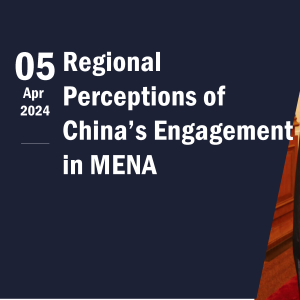
Saturday Apr 06, 2024
Regional Perceptions of China's Engagement in MENA
Saturday Apr 06, 2024
Saturday Apr 06, 2024
Between Xi Jinping’s December 2022 visit to Riyadh and the August 2023 expansion of BRICS to include several Middle Eastern countries, China’s power and influence in the MENA region appeared to gain significant momentum. Regional expectations of China as a major external actor also grew, with many countries deepening their bilateral cooperation with Beijing across economic, technological, diplomatic, and increasingly strategic sectors. However, China’s responses to the Gaza war and the Red Sea crisis have revealed a disconnect between the desires of the Middle East and what China is willing to provide. This presentation will delve into the regional perceptions of China’s expanding presence in the Middle East. Drawing on fieldwork conducted across the Middle East since mid-2022, Dr. Fulton will explore how China is perceived as a partner by individuals in the region.
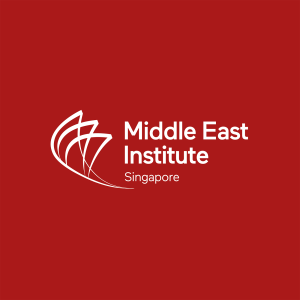
Thursday Apr 18, 2024
Thursday Apr 18, 2024
A year ago, the Middle East region was in a state of flux in certain ways, but seemed to be stabilising in others. Confrontation paradigms were giving way to what seemed to be de-escalation plans: Normalisation of relations between Saudi and Iran, and the widening of the Abraham Accords, among others. October 7 upended all of that – or did it? Dr HA Hellyer will examine how things have changed – and how, indeed, they’ve stayed the same.
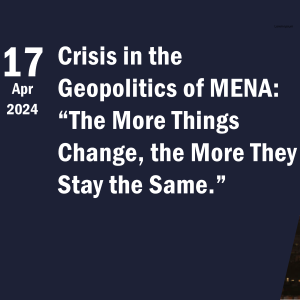
Thursday Apr 18, 2024
Thursday Apr 18, 2024
A year ago, the Middle East region was in a state of flux in certain ways, but seemed to be stabilising in others. Confrontation paradigms were giving way to what seemed to be de-escalation plans: Normalisation of relations between Saudi and Iran, and the widening of the Abraham Accords, among others. October 7 upended all of that – or did it? Dr HA Hellyer will examine how things have changed – and how, indeed, they’ve stayed the same.
![[Book Talk] Hope and Despair: Israel's Future in the New Middle East](https://pbcdn1.podbean.com/imglogo/ep-logo/pbblog4563756/Video_Opening_Title_copy_r4wyta_300x300.png)
Thursday Jul 04, 2024
[Book Talk] Hope and Despair: Israel's Future in the New Middle East
Thursday Jul 04, 2024
Thursday Jul 04, 2024
Before Hamas’ attacks on Israel on 7 October and the ensuing war in Gaza, most of the policy discussions in the Middle East focused on the process of normalisation between Israel and the Arab world. The Abraham Accords, signed in 2020 between Israel, the United Arab Emirates, and Bahrain, seemed to herald a new era for the region.
In his book, Hope & Despair, Michael A. Horowitz tells the story behind this push for normalisation. It looks not only at the hopes ushered in by the normalisation agreements, but also at the enduring despair both Israelis and Palestinians feel about the waning prospects for peace. Rather than examining the past, Horowitz looks to Israel’s future — one marked by new opportunities, but also tremendous challenges, as the country tries to find its place in a region trying to find itself.
This book talk, hosted by MEI, will provide the opportunity to discuss the current state of Israel-Arab normalisation efforts, as well as its prospects beyond the ongoing war, with the author.

